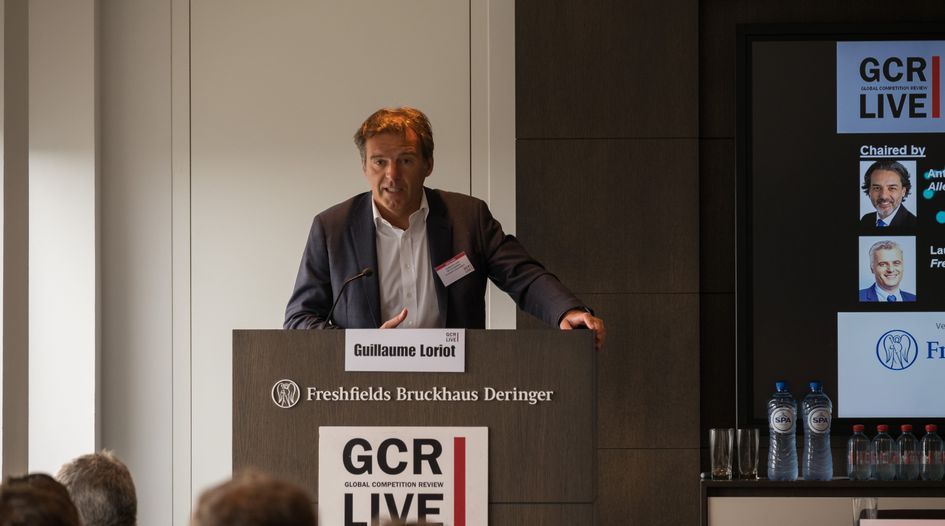The European Commission’s deputy director general for mergers has said his agency wants faster rulings from the EU courts and separately revealed that a party has rejected its request for an expedited appeal procedure.
“There is a case where the commission asked for a fast track, and the party refused,” Guillaume Loriot said in Brussels today, noting that the information was not previously in the public domain.
He did not reveal the identity of the company nor the nature of the case, but noted that its appeal is ongoing and includes jurisdictional and substantive issues.
The fast-track procedure allows the General Court to rule quickly on a dispute in particularly urgent cases. Applicants or defendants can request the expedited process or the General Court can adopt the mechanism itself.
Loriot was responding to comments during a conference today organised by the commission. Fellow panelist Frederic Depoortere, a partner at Skadden Arps Slate Meagher & Flom in Brussels, said that the duration of EU court cases is “simply inept”, especially for parties appealing against merger decisions.
He noted that the commission, because of the “high level language” of EU competition rules, has a “vast” margin of discretion on the theories of harm it can apply. Companies must rely on the agency showing self restraint, he said, noting that there needs to be some limitations on this.
But Loriot said the commission works under the assumption that its decisions will be robustly challenged in the courts with very close scrutiny. This has a “disciplining effect”, he added.
Quick court decisions provide predictability and a framework for previously untested legal issues, he said.
Lengthy decisions call into question the relevance of the judicial review process, Loriot said. He pointed to the EU’s decision to block Bookings €1.6 billion purchase of eTraveli Group, which the companies claim departed from settled precedent by focusing solely on ecosystem concerns.
It is important that the technology industry and other stakeholders have clarity from the courts on the legality of a commission decision, Loriot said. If the case takes three years, it cannot be known if the framework for assessing the deal should be applied, he said.
The conference concluded today.

